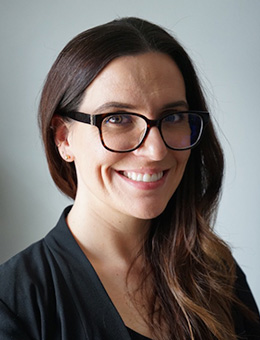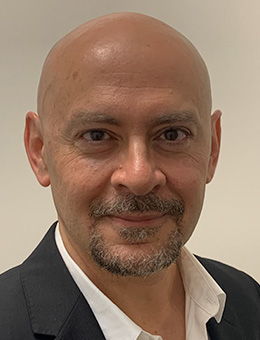These three panelists look at well-being through a social-justice or social-conscious lense. First, Lau applies the Matalili-Aga Gahua (Matalili Wellbeing Framework) to examine Niue community experiences during COVID-19 in New Zealand. Findings emphasize culturally tailored, community-led solutions for holistic care, demonstrating effective community-academic partnerships for health initiatives. Thornton-Cronin argues that a decolonized teaching and learning of the humanities requires not only changes to the curation of course materials, but also a pedagogical paradigm shift towards more empathetic, learner-centred teaching practices. This paper explores how Indigenous Ways of Knowing, Doing, and Being and other culturally-responsive teaching practices can be used to support learner mental health. Finally, Corey examines studies showing that conservatives have been happier than liberals over the past half-century. Conservatives' stronger ties to family, community, and religion offer stability, while progressives' focus on systemic injustices and climate change contributes to anxiety.
Dr. Kelvin Lau, PhD
Dr. Kelvin Lau is a Senior Lecturer in the School of Public Health and Interdisciplinary Studies (SPHIDS). With a background in molecular microbiology, his research interest is in the application of microbial ecology principles in the monitoring of environmental and human health. Kelvin has worked in both academic and commercial institutions. Since joining SPHIDS, Kelvin’s research has expanded into the areas of community health and wellbeing research. As an educator, Kelvin also has research interests in improving the learning and teaching experience, especially in the areas of wellbeing and feedback to learners. A mixed methods approach has been used in his research, including the analysis of quantitative multivariate datasets from high-throughput sequencing, and qualitative data from surveys and interviews.
Abstract: Pacific communities are extremely heterogeneous but are often aggregated together in public health reports. This can conceal important social and health characteristics, with implications on health policies and allocation of resources. Hence, culturally tailored interventions and community-based initiatives are crucial in addressing the unique health needs of Pacific communities. In this study, we describe the application of the Matalili-Aga Gahua (Matalili Wellbeing Framework) to understand the Niue community’s experiences during the COVID-19 pandemic in Aotearoa New Zealand. The Matalili Framework integrates three key principles from traditional stories and knowledge shared by Niue elders: Vahā Loto-Agaaga Ofania (Spirit of Care), Fakafetuiaga (Inclusive Relationship), and Fakamalolo (Empowerment).
The aims of this study were to understand the key experiences of the Niue community during the COVID-19 pandemic relating to their wellbeing and perceptions of the COVID-19 vaccine. We addressed the research aims using a mixed-method approach, with 380 completed responses to the survey, followed by 26 participants in tala or narrative interviews. The findings highlight the importance of community-based and community-led solutions that provide holistic, tailored care for individuals and families. This study provides an example of community-academic partnership, where the research draws on the respective strengths and expertise of academics and community partners to achieve constructive community health outcomes. The inclusive research partnership empowers communities to inform initiatives to support their wellbeing in response to future disruptions.
Dr. Lesley Thornton-Cronin, PhD
 Dr. Lesley Thornton-Cronin is an art historian and Professor of Aesthetics in the Department of Liberal Studies at Humber College. Her research interests include Surrealism and the 20th Century Avant-Garde. As an educator, she is committed to culturally-responsive pedagogy and decolonial approaches to the teaching of art history, aesthetics, and visual culture.
Dr. Lesley Thornton-Cronin is an art historian and Professor of Aesthetics in the Department of Liberal Studies at Humber College. Her research interests include Surrealism and the 20th Century Avant-Garde. As an educator, she is committed to culturally-responsive pedagogy and decolonial approaches to the teaching of art history, aesthetics, and visual culture.
Abstract: The decolonized teaching and learning of the humanities requires not only changes to the curation of our course materials, but also a pedagogical paradigm shift towards more empathetic, learner-centred teaching practices. This paper explores how Indigenous Ways of Knowing, Doing, and Being and other culturally-repsonsive teaching practices can be used to support learner mental health in the wake of unique learning challenges exacerbated by the COVID-19 pandemic.
Dr. Paul Corey, PhD
 Paul Corey is Professor in the Faculty of Liberal Arts & Sciences at Humber College in Toronto. He is the author of Messiahs and Machiavellians: Depicting Evil in the Modern Theatre (Notre Dame, 2008).
Paul Corey is Professor in the Faculty of Liberal Arts & Sciences at Humber College in Toronto. He is the author of Messiahs and Machiavellians: Depicting Evil in the Modern Theatre (Notre Dame, 2008).
Abstract: Numerous social scientific studies have found that, over the past half century, conservatives are happier than liberals (Napier, Jost, 2008; Schlenker, Cambers, Le, 2012; Yancy, 2023). Often described as the “happiness gap,” it has not diminished in recent years. On the contrary, there are signs it is widening – particularly with progressive adolescents, who are more likely to show symptoms of anxiety and depression (Gimbrone, Bates, Prins, Keyes, 2022). There are a number of common explanations offered, including: conservatives are less bothered by social inequities, whereas progressives are constantly frustrated by systemic injustices; conservatives are less worried by climate change, whereas progressives live in apocalyptic expectation of a warming planet; conservatives have stronger ties to family, community, and religion, which provide stability and meaning, whereas progressives live more individualistic, fluid, and secular lives, in which there is less familial support and little sense of ultimate purpose in the world. A knee-jerk reaction from progressives might be to say that the right is deliberately ignorant, and thus “ignorance is bliss.” As the saying goes: “If you’re not outraged, you’re not paying attention.” But this paper will argue that progressives should not rest easy with this simplistic dismissal. The left should look inward, and seriously consider if it is cultivating a politics of despair. If the left sees systemic inequity baked into every social structure, and a future in which the planet burns, is mental health, let alone joie de vivre, even possible? Albert Camus is helpful for wrestling with these matters. Camus proposed an ethic in which the tragic dimensions of life are recognized and where injustices are resisted. Camus also emphasized that the beauty of life needs to be celebrated – even in the shadow of tragic realities. Camus can thus be a vital source for a renewed left.
